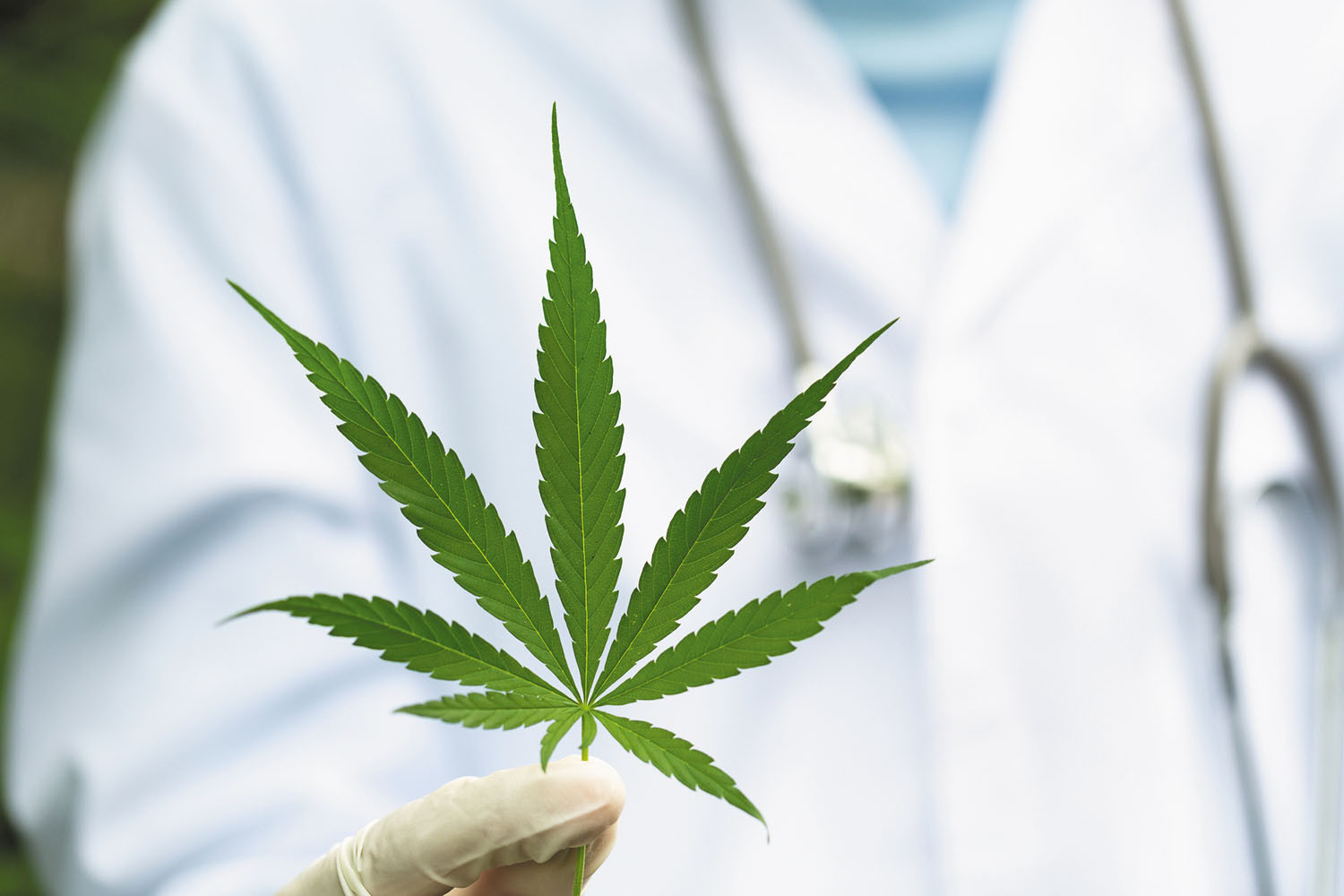Utilizing the Possible of Medical Cannabis: Comprehending Its Function in Promoting Wellness and Alleviating Health Issues

The Scientific Research Behind Clinical Cannabis
The efficacy of medical marijuana in treating numerous health and wellness conditions is rooted in its communication with the endocannabinoid system within the body. This complicated biological system plays a critical duty in controling numerous physiological procedures such as appetite, pain state of mind, memory, and sensation. The active compounds in medical marijuana, called cannabinoids, imitate the endocannabinoids created naturally by the body, binding to cannabinoid receptors to modulate these physical functions.
One of the key cannabinoids discovered in medical cannabis is cannabidiol (CBD), which is non-psychoactive and has been examined for its potential healing effects. By comprehending the scientific research behind exactly how medical cannabis interacts with the endocannabinoid system, researchers can continue to discover its capacity in promoting health and alleviating various health issues.
Healing Properties of Cannabis
Comprehending the complex interactions between cannabinoids and the endocannabinoid system sheds light on the healing buildings of marijuana for numerous health and wellness conditions. Cannabinoids, such as tetrahydrocannabinol (THC) and cannabidiol (CBD), are the key substances accountable for the medicinal advantages of marijuana.
Researches have demonstrated the efficiency of medical marijuana in minimizing symptoms related to chronic pain, several sclerosis, and chemotherapy-induced queasiness and vomiting - Medical Cannabis Card. Furthermore, cannabis has revealed pledge in treating psychological health problems like anxiety, depression, and post-traumatic tension disorder (PTSD)
In addition, the anti-inflammatory residential or commercial properties of cannabinoids make marijuana a potential treatment choice for inflammatory conditions such as arthritis and inflammatory digestive tract illness. The restorative potential of marijuana remains to be discovered through research, providing brand-new understandings right into its duty in advertising wellness and dealing with a variety of health concerns.
Medical Marijuana for Persistent Pain
Discovering the effectiveness of clinical cannabis in handling chronic discomfort discloses its possible as a feasible treatment choice for individuals seeking option pain relief techniques. Chronic pain affects millions worldwide, often leading to a reduced lifestyle and reliance on standard pain medications that might feature undesirable adverse effects or risks of addiction. Clinical cannabis, with its energetic substances like THC and CBD, has actually revealed promise in easing chronic discomfort by communicating with the body's endocannabinoid system to regulate pain understanding.
Researches have actually indicated that clinical marijuana can efficiently reduce neuropathic pain, arthritis-related discomfort, and pain related to conditions like multiple sclerosis. Its anti-inflammatory residential properties can also add to discomfort relief in conditions such as fibromyalgia. Clinical marijuana supplies an extra all-natural method to pain management, possibly lowering the requirement for opioids and other drugs with harsher side results.
As study into the advantages of medical cannabis for persistent discomfort remains to broaden, its duty in giving holistic pain alleviation services becomes progressively significant for people and medical care companies alike.

Marijuana for Anxiety and Stress
Research shows the capacity of cannabis in mitigating signs and symptoms of anxiousness and anxiety, providing an appealing opportunity for those seeking choice healing choices. Anxiousness and anxiety prevail psychological health and wellness issues that can substantially impact a person's wellness and daily functioning. Standard therapies such as treatment and medicine might not always work for everyone, resulting in a growing rate of interest in different treatments like clinical marijuana.
Cannabis contains compounds understood as cannabinoids, such as cannabidiol (CBD) and tetrahydrocannabinol (THC), which engage with the body's endocannabinoid system to regulate various functions, including state of mind and anxiety reactions. Research studies have actually shown that CBD, specifically, has anxiolytic residential properties, meaning it can help decrease anxiousness levels. THC, on the other hand, might supply leisure and mood-lifting impacts that can be useful for handling stress and anxiety.
Private reactions to marijuana can walmart health clinic differ, so it is necessary for people thinking about marijuana as a treatment alternative for anxiousness and anxiety to seek advice from medical care specialists well-informed regarding clinical marijuana to establish one of the most appropriate items and does for their needs.
Marijuana in Epilepsy Treatment
With the tried and tested efficiency of marijuana in addressing anxiety and stress, focus has actually transformed in the direction of its prospective duty in the therapy of epilepsy. Epilepsy is a neurological disorder characterized by reoccurring seizures, which can dramatically impact an individual's quality of life. For people whose seizures are not properly controlled with conventional treatments, exploring different restorative options such as medical marijuana has actually ended up being increasingly pertinent.
Research on using cannabis for epilepsy is still evolving, however there is expanding evidence to suggest that certain substances in cannabis, such as cannabidiol (CBD), may use anticonvulsant effects. CBD, specifically, has revealed promise in lowering the regularity and extent of seizures in some people with epilepsy, bring about the approval of Epidiolex, a CBD-based medicine, for the treatment of certain kinds of seizures.
While even more studies are needed to totally understand the systems behind cannabis' possible benefits for epilepsy and to identify one of the most effective formulas and does, the current findings suggest a promising future for integrating clinical cannabis into epilepsy therapy plans.
Verdict
In verdict, medical marijuana has shown promising restorative homes in dealing with various wellness issues such as persistent pain, anxiousness, tension, and epilepsy. Recognizing the role of medical marijuana in health care can lead to enhanced treatment choices for patients looking for option treatments.
From persistent pain administration to anxiousness alleviation and also in the therapy of epilepsy, the duty of medical cannabis is multifaceted and fascinating. Medical Marijuana Doctor Clinton MS.Checking out the efficacy of medical cannabis in taking care of persistent pain discloses its possible as a practical treatment alternative for individuals looking for choice discomfort relief methods. Medical cannabis, with its energetic compounds like THC and CBD, has revealed pledge in minimizing chronic discomfort by interacting with the body's read more endocannabinoid system check my site to regulate discomfort understanding
Studies have shown that clinical marijuana can successfully decrease neuropathic pain, arthritis-related discomfort, and pain connected with problems like numerous sclerosis.In conclusion, medical marijuana has shown encouraging therapeutic residential properties in dealing with numerous health issues such as persistent pain, stress and anxiety, anxiety, and epilepsy.